POPOBAWA
POPOBAWA
Tanzanian Talk, Global Misreadings
Katrina Daly Thompson
Indiana University Press
Bloomington and Indianapolis
This book is a publication of
Indiana University Press
Office of Scholarly Publishing
Herman B Wells Library 350
1320 East 10th Street
Bloomington, Indiana 47405 USA
iupress.indiana.edu
2017 by Katrina Daly Thompson
All rights reserved
No part of this book may be reproduced or utilized in any form or by any means, electronic or mechanical, including photocopying and recording, or by any information storage and retrieval system, without permission in writing from the publisher. The Association of American University Presses Resolution on Permissions constitutes the only exception to this prohibition.

The paper used in this publication meets the minimum requirements of the American National Standard for Information SciencesPermanence of Paper for Printed Library Materials, ANSI Z39.48-1992.
Manufactured in the United States of America
Library of Congress Cataloging-in-Publication Data
Names: Thompson, Katrina Daly, 1975- author.
Title: Popobawa : Tanzanian talk, global misreadings / Katrina Daly Thompson.
Description: Bloomington and Indianapolis : Indiana University Press, 2017. | Includes bibliographical references and index.
Identifiers: LCCN 2016042295 (print) | LCCN 2016043138 (ebook) | ISBN 9780253024497 (cloth : alk. paper) | ISBN 9780253024565 (pbk. : alk. paper) | ISBN 9780253024619 (e-book)
Subjects: LCSH: Sex customsTanzaniaZanzibarAttitudes. | TanzaniansSexual behaviorAttitudes. | Animals, MythicalTanzaniaZanzibar. | DemonologyTanzaniaZanzibar. | Public opinionTanzaniaZanzibar. | Swahili languageDiscourse analysis. | ZanzibarSocial life and customs.
Classification: LCC GN484.3 .T56 2014 (print) | LCC GN484.3 (ebook) | DDC 306.709678/1dc23
LC record available at https://lccn.loc.gov/2016042295
1 2 3 4 5 22 21 20 19 18 17
Contents
Acknowledgments
T HE RESEARCH ON which this book is based was partially funded by several different sources: a grant from the Center for the Study of Women at UCLA, another from the Dean of the Humanities division there; and funds from the Graduate School and the African Studies Program at the University of WisconsinMadison.
Parts of this book were presented at the Moral Panics of Sexuality conference at Arizona State University in October 2011, at the African Studies Programs Africa at Noon lecture series at the University of WisconsinMadison in October 2013, as part of Wendy Belchers lecture series at Princeton University, Vampires and Zombies, the Better to Theorize You With, in April 2014, and at the Towards African Cultural Studies conference put on by my home department, African Languages and Literature (now the Department of African Cultural Studies) at the University of WisconsinMadison in May 2015. I am grateful to those in attendance at those talks for insightful questions that helped me to clarify my argument.
An earlier version of chapter five was previously published in GLQ: A Journal of Lesbian and Gay Studies; it is included here by permission of the copyright holder, Duke University Press. Chapter six appeared in a different version in Discourse & Society and is published here with permission from Sage. Parts of chapter seven were published in Critical Discourse Studies; they are included here with permission of Taylor & Francis.
I thank former graduate students at UCLA and UWMadison, Willis Okech, Michelle Oberman, Olga Ivanova, and Beatrice Mkenda, for assistance with transcription and other aspects of the research. Martin Kaminer and Joseph Nagy helped me think through the obligation to retell narrative frame discussed in chapter three. Ivy Mills offered useful comments on an early draft of one chapter, as did Claudia Bhme on several chapters as well as the overall structure of the book. Martin Walsh not only offered feedback on the book but also generously shared the Popobawa stories Jamila collected for him in 1995 and has been responsive to every question Ive thrown his way. Sarah Cypher at the Threepenny Editor gave me invaluable editorial advice, and Dee Mortensen has been wonderful to work with at Indiana.
Most thanks of all go to my favorite writerpurveyor of ideas, puns, encouragement, and plenty Popobawa humormy husband, my love, Tony.
POPOBAWA
Introducing Popobawa
Texts haunt each other.
Karin Barber, Anthropology of Texts, Persons, and Publics
On a warm June night in Los Angeles, just after UCLAs spring quarter had ended, I was at a party hosted by one of my graduate students. We were speaking Swahili and drinking Tuskers over Swahili food wed all brought to share when a young woman from Dar es Salaam, Tanzania (the wife of one of my students), told me a story that has haunted me for a decade.
Have you heard of Popobawa? she asked. Her voice was full of laughter. This giant bat-like creature, she said, is known to slip into peoples homes at night, paralyzing men and raping them. After he rapes a man, Popobawa tells him, You must tell ten people what I have done to you or I will make you my wife. Men use conversational narratives, phone calls, text messages, and radio broadcasts, she said, to spread the word that they have been sodomized. These stories are then taken up and circulated by both men and women through various genres of legendry, the range of expressions that gravitate around [legends that take the form of] narratives, including belief, rumor, ritual, and commentary and debate about the event that the narrative recounts, which is often expository rather than narrative.
In the decade that has passed since I first heard of Popobawa, I have had countless conversations about Popobawa and collected other versions of this legend and related legendry in Dar es Salaam and Zanzibar. I have also gathered print versions published and illustrated in Tanzanian popular magazines and books, a feature film for sale or rent in DVD shops and kiosks, as well as references to and images of Popobawa published on the Internet by people all over the world. Popobawa attacks are shrouded by mystery and speculation, which makes them a popular subject for conversation, rumor, and gossip, widespread among male and female Swahili-speakers of all ages, education levels, and class backgrounds. The Popobawa legend exhibits a great deal of diversity across timefrom 1965 to the presentand spacefrom Pemba to Unguja, from Dar es Salaam on the east coast to the rest of Tanzania, and beyond Tanzanias borders through global media. What may have begun as narrating real experiences of sleep paralysis has assimilated features of witchcraft, Islamic djinn lore, Western vampire legends and popular cinema, ancestral spirits, love spirits, homophobia, trickster stories, and joking relationships. Talk and texts about the Popobawa legend (metadiscourse) also abound, both within Tanzania and beyond, via media with global reach, such as Wikipedia and Facebook. In fact, Popobawa is my Facebook friend.
Prior to talking with Tanzanians about Popobawa, I expected to find the meaning behind the legend. Given the version of the legend I had initially heard, I suspected that it had something to do with Tanzanian fears about imported or increasing homosexuality and/or about the spread of acquired immunodeficiency syndrome (AIDS). I associated the name Batwing with vampire legends. An interview that director Alan Ball gave on Terry Grosss radio show


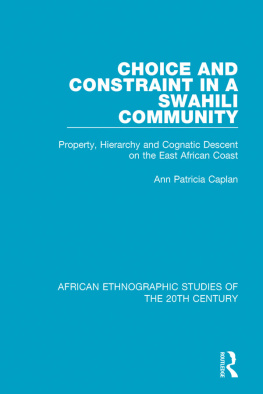
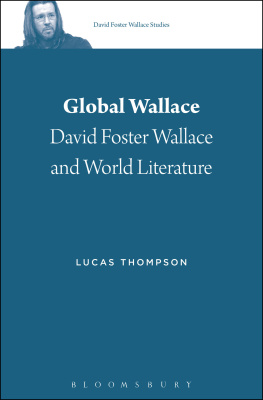
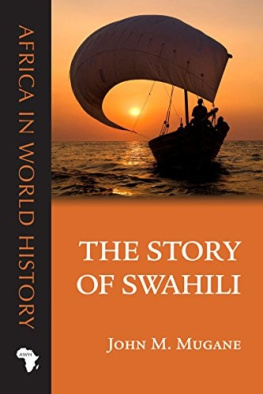
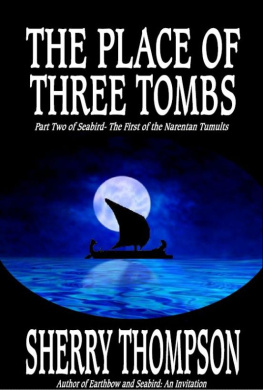
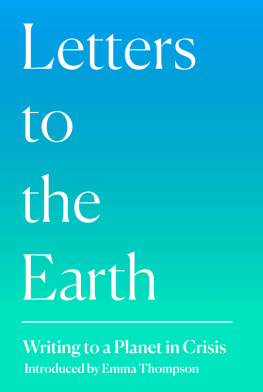




 The paper used in this publication meets the minimum requirements of the American National Standard for Information SciencesPermanence of Paper for Printed Library Materials, ANSI Z39.48-1992.
The paper used in this publication meets the minimum requirements of the American National Standard for Information SciencesPermanence of Paper for Printed Library Materials, ANSI Z39.48-1992.